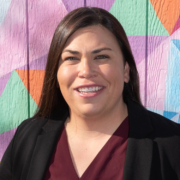2023 Ideas Challenge Entry
Montgomery County Councilmember Will Jawando authored the Housing Opportunity, Mobility, and Equity (HOME) Act that would protect tenants through rent stabilization, provide predictable housing costs, and help them stay in their homes over time, just like homeowners. The County Council approved renter regulations that balance the need to protect tenants with providing landlords with economic tools to maintain and build housing. Montgomery County is the first county in Maryland to establish permanent rent stabilization at a maximum cap of 6%.
The compromise bill that passed, Rent Stabilization, prevents rent gouging, reduces displacement, and creates cost predictability for tenants and landlords by:
– Setting an annual rental increase allowance of CPI-U plus three percent, capped at a maximum of six percent;
– Establish guidelines for fees and fee increases for regulated rental units;
– Establishing provisions for the landlord to increase the rent above the cap and apply a surcharge for renovations; and
– Defining a process for landlords to bank unused rental increase allowances.
Impact:
The bill is already having an impact, sending a clear message that the county cares for renters and believes they should have sustainable housing with predictable costs.
As the bill goes into effect, the county will monitor its implementation to ensure that it balances the need to protect tenants with providing landlords with economic tools to maintain and build housing. A protection or right is also only as good as it is known by the public, particularly those most impacted, and the next steps will include raising awareness among tenants and landlords about their rights and responsibilities.













